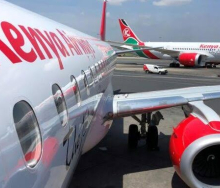THE expected
implementation date
of the Protection of
Personal Information (POPI)
Act is December 1, says
Pansy Tlakula, full-time
member and chairperson of
the Information Regulator.
From date of implementation,
businesses will have 12
months to comply.
With implementation less
than a year away, the big
question is, will the travel
industry be ready? Otto de
Vries, ceo of Asata, believes
that it will be, considering
that regular communication
has gone out to travel
agents over the last few
years. However, he says:
“Compliance is not simply
a process of ticking the
boxes – efforts to comply are
ongoing.”
Advocate Louis Nel says
agents who don’t comply
could face penalties of up
to R10m and possibly even
jail time. “Agencies must
audit their current structures
and documents and train
their staff.” Although not
a prerequisite of the Act,
Louis says it’s a statutory
obligation that agents also
join the new Consumer
Goods and Services
ombudsman.
Charmaine van Niekerk,
HR and operations director
of Club Travel, says the
company has already put
measures in place to comply.
“Club Travel’s employees sign
a confidentiality clause and
its Contracts of Employment
make specific reference
to the POPI Act and the
obligations of the employer
and employee. Upon
termination of service, our
ex-employees are reminded
that the contract remains
in effect. Client credit card
details are encrypted in our
back-office systems and we
have implemented firewalls
and other security systems
to prevent a breach of our
information systems. The
POPI Act is referred to in
our terms and conditions of
trading, which is brought to
the client’s attention before
trading,” she says.
“We are encouraging online
payment via credit card
through 3D-secure channels
to ensure clients’ information
is protected. Where this is
not possible, we swipe the
client’s credit card in store
to avoid having to take credit
card change forms (CCCFs)
and the required copies
of IDs and cards that the
airlines require us to collect
when accepting CCCFs,”
says Michelle Boshoff, gm,
Central Services of Pentravel.
She says taking payments
for airlines is an area of
concern, since the airline
is the merchant effecting
the transaction. To prevent
chargebacks for fraudulent
transactions, sensitive and
personal information needs
to be provided by the client,
“which concerns many of
them,” she says. However, as
credit card fraud is rife, she
believes the POPI regulations
are important.
For Charmaine, the main
concern is that the Act is a
‘one size fits all’ and has
not been well thought out
in terms of the practical
implementation across
several industries. “The
travel industry acts as an
agent for its customers and,
from necessity, has to pass
customer information on to
second-, third- and fourthparty
suppliers who do not
necessarily subscribe to the
Act,” she adds.
Kirsty Hutchinson,
marketing co-ordinator of
Reynolds Travel Centre, says
the agency will be visiting
each corporate client to
explain POPI in full and
how it will impact business.
“Clients will be made aware
that we will store their data
and at any time they can
request that their profile
be deleted. We have set
deadlines and are striving to
meet them.”
For agencies that haven’t
started the compliance
process yet, Gareth Cremen,
director of Hogan Lovells,
highly recommends getting
started, as the process is an
ongoing one. “Realistically,
parties will probably never
be 100% compliant, however
being able to prove that
they are as compliant as
possible will count in their
favour should they face any
penalties or legal action.”
Dont,t panic help is at hand
For a quick guide series
on how to be compliant,
agents are welcome to
logon to the Asata member
page on the website or
contact Asata directly.













